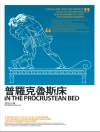In Autobiography of Andrew Carnegie, the legendary industrialist opens a window into his life, inviting readers on an extraordinary journey from his modest beginnings in Scotland to becoming one of the wealthiest and most influential men in the world. This remarkable narrative is not just a personal history but a rich tapestry of the American dream realized, painted by the very hands that helped shape modern industry.
Born in 1835 in Dunfermline, Scotland, Andrew Carnegie’s early life was marked by poverty and hardship. His family emigrated to the United States in 1848, seeking better opportunities. Settling in Allegheny, Pennsylvania, young Carnegie quickly took on the role of breadwinner. He began his career as a bobbin boy in a cotton factory, working long hours for meager wages. Despite these humble beginnings, Carnegie harbored grand dreams and an insatiable thirst for knowledge.
Carnegie’s autobiography delves into his early experiences, highlighting how they shaped his character and ambitions. His transition from a bobbin boy to a telegraph messenger boy marked the first step towards a future filled with promise. His keen observational skills and relentless work ethic caught the attention of Thomas A. Scott of the Pennsylvania Railroad, a pivotal figure in Carnegie’s life who mentored him and provided invaluable opportunities.
Rising through the ranks, Carnegie became a key figure in the railroad industry, learning the intricacies of management and operations. These experiences laid the groundwork for his later ventures into the steel industry. The autobiography vividly recounts his strategic investments and the calculated risks he took, which ultimately led to the creation of the Carnegie Steel Company. His innovative adoption of the Bessemer process revolutionized steel production, allowing him to produce high-quality steel at a lower cost, thus outpacing competitors and reshaping the industry.
Carnegie’s narrative is not just a chronicle of his business acumen but also a testament to his philosophy of wealth and responsibility. He believed passionately in the principle that the wealthy have a duty to give back to society, a concept he famously articulated in his essay ’The Gospel of Wealth.’ The autobiography provides an intimate look at his philanthropic endeavors, detailing his significant contributions to education, peace, and culture. From founding libraries across the United States and the United Kingdom to establishing institutions like Carnegie Mellon University and the Carnegie Endowment for International Peace, his legacy of generosity is thoroughly explored.
The autobiography also reflects on the personal aspects of Carnegie’s life-his relationships, his values, and his vision for a better world. He writes candidly about his commitment to peace and international cooperation, advocating for the resolution of conflicts through dialogue and understanding. His dedication to these ideals remained unwavering until his death in 1919.












